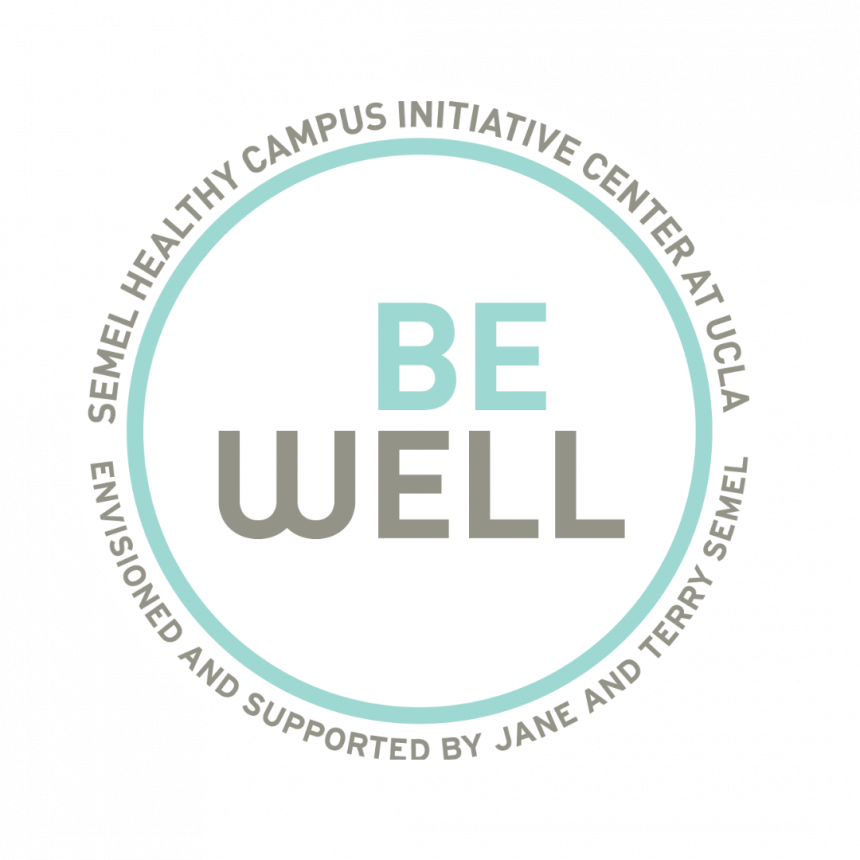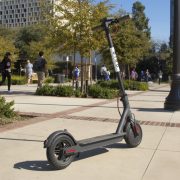Transportation Do’s and Don’ts
There are more ways than ever to get around campus and the city of Los Angeles. Thousands of people with busy schedules navigate our 419 acre campus everyday, with many interested in finding new ways to cut their travel times.
However, more transportation options demand more logistical planning. For example, each mode of transportation needs a clear place to begin and end that does not create interference or congestion. On the UCLA campus, this means dedicating space for bike racks, designating certain road/entryways on campus for Uber and Lyft hailing/drop-off, as well as educating and enforcing proper Bird scooter usage.
Ride hailing services such as Uber and Lyft have become immensely popular in recent years. The best feature of these services is their “pooled” ride option. Not only do they have the potential to improve traffic and reduce the number of cars on the road, but they can also lower greenhouse gas emissions as shown in a study conducted by Daniela Rus at MIT.
One of the biggest complaints about Uber is that they create congestion when cars slow down to look for their riders. In October of 2017, UCLA sought to address this by implementing 12 on-campus ride-share pick-up locations for passengers from 7 am to 6 pm Monday through Friday. With these zones, drivers and passengers know exactly where to meet, eliminating the need for the driver to idle (circle) when looking for their destination and ultimately making the road safer for pedestrians and cyclists.
Several major U.S. cities including Washington, D.C., San Francisco and Fort Lauderdale, have responded similarly to the massive rollout of Uber and Lyft. In these cases, cities have replaced some traditional parking spots to make space for pick-up and drop-off areas. Their motive is the same as UCLA’s: to eliminate the danger and disruption caused by riders being picked up or dropped off anytime, anywhere. As a result, curb space is in more demand today than it’s ever been before.
Bikes are also still a popular way to get around. Biking provides many benefits including lowering greenhouse gas emissions, affordability, and exercise. One of the most important measures a biker must take is to securely lock up their bicycle when they’re not using it. Bike theft is a major problem in cities. However, a few important steps can be followed to ensure your bike isn’t stolen. First, you should only lock your bike to a heavy object that’s securely fastened to the ground. A bike rack is ideal, but other fixtures work as well. Once you’ve found this, U-locks are the best option. A cable lock is great to use in conjunction, but never without a U-Lock. The U-Lock must also be attached properly to be effective. The best way is to put the lock through the rear wheel and the triangle-shaped body of the bike. A cable lock can then be attached around the front wheel. You must also consider the time of day you are locking your bike. The later it gets, the more dangerous it is for your bike.
A new and popular transportation method is the Bird scooter. These are electric scooters that are available to rent and pick-up without required docking locations. While regular scooters without motors are permissible on sidewalks, Bird scooters are not permissible because they have a motor. Additionally, the law requires riders to wear helmets. Furthermore, Santa Monica, where Bird scooters were first launched, has just made it legal for police authorities to impound scooters that are left in areas obstructing others. Westwood and surrounding areas in LA may be next to do so. With this in mind, make sure to leave your Bird somewhere that does not impede the travel of others. Recently, UCPD has begun enforcing improper use of these scooters. However, they aim to educate riders on the rules, rather than punishing them.
The next time you look for a different way to get around, make sure to be considerate of others who are trying to do the same thing. New transportation methods should be welcomed as long as people are properly educated on how to ride responsibly.
Summary Do’s and Don’ts
Uber/Lyft
DO:
- Select “pooled”/”shared” rides to save money and the environment
- Meet your driver at one of the designated spots on campus between 7AM to 6PM Monday through Friday
DON’T:
- Ask your driver to drop you off just anywhere
- Order a ride before you’re ready to go so as to not keep them waiting
Bicycles:
DO:
- Use a U-Lock to secure your bike
- Lock your bike in easily visible places where it’s harder for someone to steal it without being noticed
DON’T:
- Only use a cable lock
- Lock your bike to something that can be lifted off the ground
Bird Scooter:
DO:
- Wear a helmet
- Have a Driver’s License
DON’T:
- Ride them on the sidewalk
- Park them in a way that blocks pedestrian paths
Teddy Tollin is a third year Geography major and Geographical Information Systems minor at UCLA. Besides working at his position as the BEWell pod blogger, Teddy is a member of the Transfer Student video team, Co-Chair of the Built Environment Public Health Coalition, and is passionate about Urban Planning.

